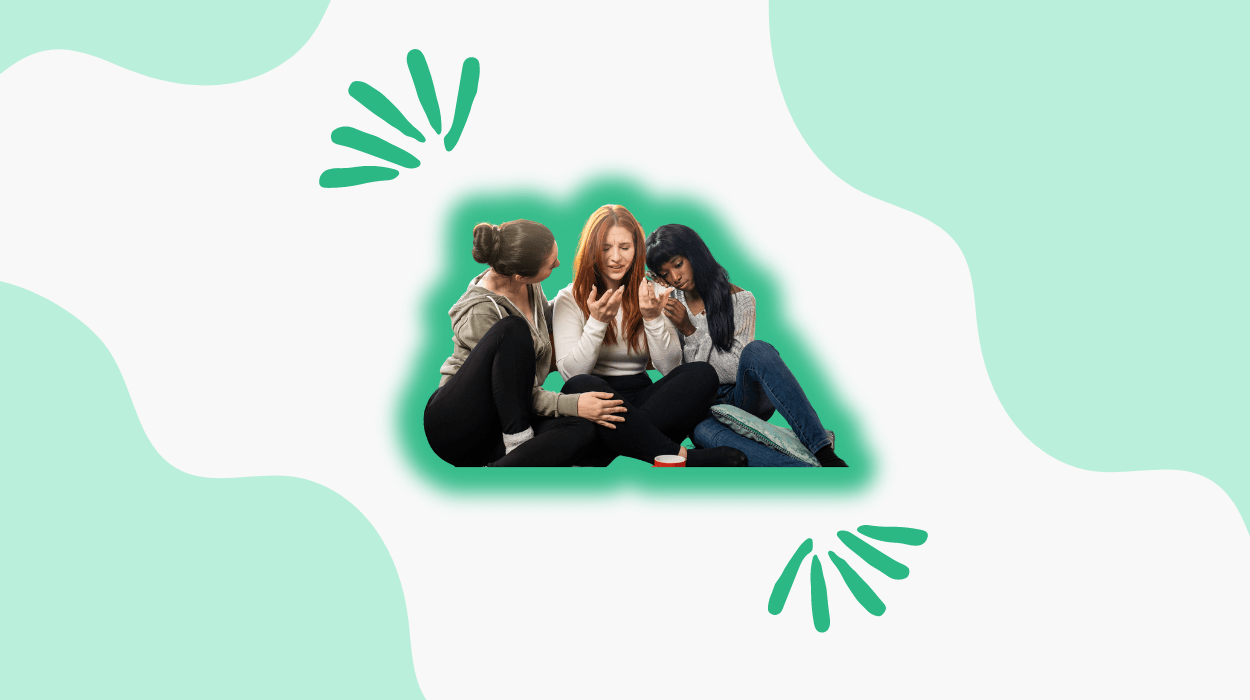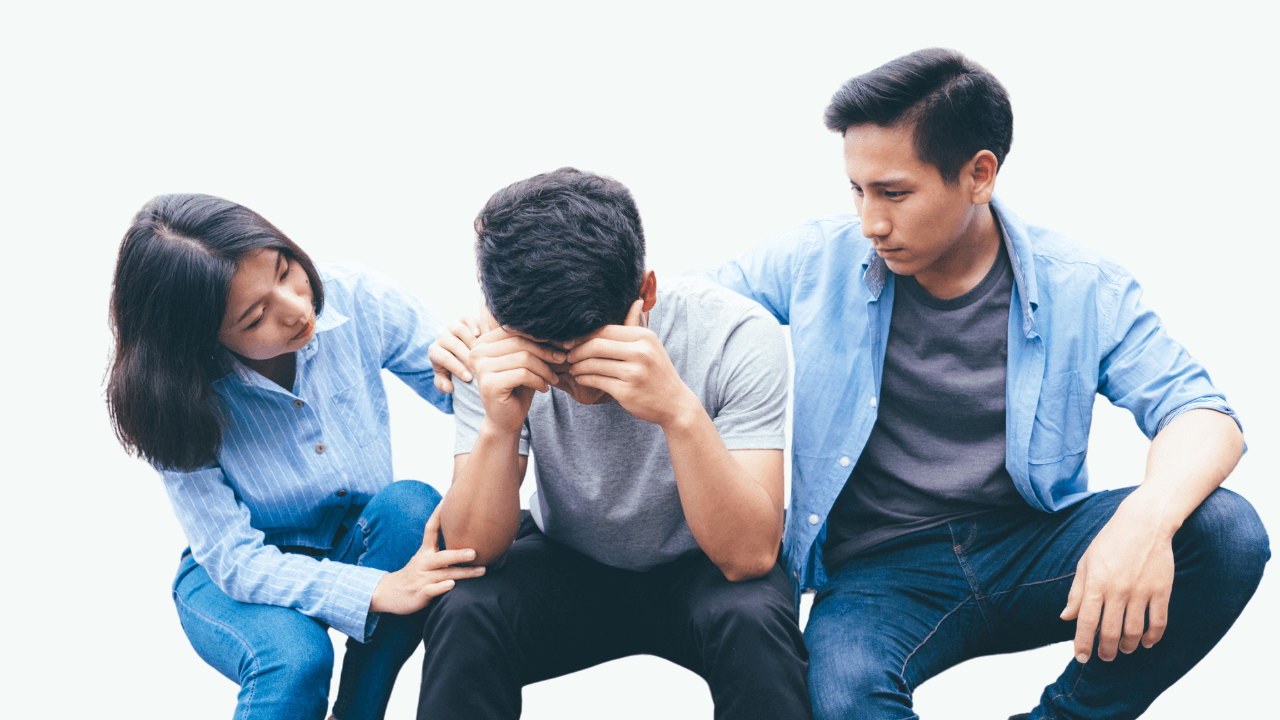

Social anxiety disorder and depression are prevalent mental health conditions that often coexist. These problems can present complex challenges in social interactions and emotional well-being.
An intense fear of social interactions characterizes social anxiety, while depression manifests as persistent sadness. These two conditions, although distinct, are among the most typically diagnosed mental health disorders in the United States.
Social anxiety could be a precursor to depression. The fear of social interactions may hinder forming relationships, leading to missed opportunities and feelings of isolation.
If you have social phobia, you may have experienced bullying or rejection, which could negatively impact self-esteem and confidence, potentially triggering depression later in life.
Untreated social anxiety could result in frustration, hopelessness, isolation, and eventually depression.
If you’re feeling anxious or down when you’re around others, reaching out to a professional for support is crucial. They can provide the help you need to feel better mentally and physically.

Social anxiety and depression often lead to withdrawal from social interactions and feelings of worthlessness. Still, their root causes and responses may differ.
Experiencing social anxiety may avoid social situations due to fear of judgment, leading to isolation. On the other hand, if you have depression, you may withdraw due to loss of interest and motivation.
Research indicates that approximately 70% of people diagnosed with both social anxiety and depression experience social anxiety first, followed by depression.
Social anxiety might often precede depression, but it may also emerge as a symptom of depression, worsening an underlying social phobia.
Here is a comparison table highlighting the differences between social anxiety and depression:
| Social Anxiety | Depression |
|---|---|
| Fear of judgment | Feelings of worthlessness |
| Avoidance of social situations | Loss of interest and motivation |
| Symptoms triggered by social interactions | Pervasive feelings of sadness |
| Focus on external situations | Internal emotional numbness |
| Physical symptoms like sweating and trembling | Physical symptoms like exhaustion and changes in sleep patterns |
This connection between social anxiety and depression might have a deep impact on a person’s mental well-being and quality of life.
Understanding the relationship between these two conditions is crucial for effective management and support.
Experiencing physical symptoms such as lightheadedness and nausea is common among people dealing with social anxiety disorder. Some other symptoms include:
Psychological symptoms with social anxiety disorder could be debilitating.
These psychological symptoms may profoundly impact your quality of life, affecting relationships, work performance, and well-being.
Symptoms of depression encompass a range of emotional, cognitive, and physical manifestations that might significantly impact daily functioning and well-being. These symptoms could vary in intensity and duration, affecting you differently.
Here is a breakdown of common symptoms adults with depression may experience:
| Emotional Symptoms | Cognitive Symptoms | Physical Symptoms |
|---|---|---|
| Feelings of emptiness | Difficulty concentrating | Body aches |
| Persistent sadness | Negative thoughts | Low energy or fatigue |
| Loss of interest in activities | Memory problems | Changes in sleep patterns |
In children, the manifestation of depressive symptoms may present as changes in behavior and emotional expression. These signs could often be subtle and overlooked, impacting the child’s well-being and development.
Parents and caregivers need to be aware of the following common symptoms of depression in children:
Identifying these signs earlier on and seeking appropriate support and intervention may help in addressing childhood depression.
Encouraging open communication, providing a supportive environment, and seeking help from mental health professionals could significantly impact a child’s recovery and well-being.
Creating a safe space for children to express their emotions and concerns is essential. It fosters a sense of understanding and empathy to navigate through their struggles effectively.
It is essential to pay attention to a combination of symptoms that may indicate the presence of both disorders.
If you find yourself avoiding social interactions due to fear of judgment or experiencing a pervasive sense of hopelessness, it could be a sign that both social anxiety and depression are at play.
The co-occurrence of these disorders could create a cycle where social anxiety leads to isolation, which in turn worsens depressive symptoms.
Understanding that symptoms of social anxiety are situation-specific while depression tends to be more pervasive might also help in recognizing the presence of both conditions.
When exploring medication options, it’s essential to consider the following:
Through techniques like cognitive behavioral therapy (CBT), people may learn to challenge and reframe distorted thinking patterns that contribute to anxiety and depression.
In CBT, people are guided to recognize and modify these negative thought cycles, developing healthier perspectives and coping mechanisms to navigate social interactions and daily challenges.
Therapists often tailor sessions to target specific concerns related to social anxiety and depression, such as fear of judgment, low self-esteem, and avoidance behaviors.
Providing a secure space for exploration and growth psychotherapy could help encourage people to gradually confront their fears, enabling them to build confidence and resilience.
Therapy sessions might also offer a supportive environment where people express their emotions, receive validation, and work towards setting achievable goals for personal development.
Implementing lifestyle changes may significantly alleviate symptoms of anxiety and depression and enhance well-being. Some of these changes include:
Integrating the following self-care strategies into their lives may help people take positive steps toward managing symptoms and improving their mental health:
Alterations in brain activity and structure, characterized by hyperactivity in the amygdala (responsible for emotional responses) and imbalances in the prefrontal cortex (associated with rational thought), may contribute to the development of both social anxiety and depression.
People with social anxiety may experience the onset of depression due to a combination of factors that may worsen their condition and hinder their ability to engage in fulfilling social interactions.
The persistent fear of judgment and overwhelming worry in social situations could lead to social withdrawal, contributing to isolation and loneliness.
This isolation, often not by choice but due to the disabling nature of social anxiety symptoms, deprives people of essential human contact and support, increasing their vulnerability to depression.
The chronic inactivity resulting from avoiding social settings may leave people feeling empty and unfulfilled, paving the way for depressive symptoms.
Negative experiences like teasing, bullying, or rejection due to their social anxiety symptoms could reinforce their fears and negative emotions, impacting their mental well-being.
The intersection of social anxiety and depression presents a complex and challenging situation for people struggling with these mental health conditions.
People experiencing social anxiety feel intense fear or worry in social situations, coupled with physical symptoms like sweating, trembling, or a rapid heartbeat.
On the other hand, depression may manifest as persistent feelings of sadness, low self-esteem, and a loss of interest in activities once enjoyed.
Understanding the symptoms, diagnosis, and treatment approaches for these disorders may assist people, their healthcare professionals, and caregivers in better navigating the impact of these conditions on daily life.
Tyler Read earned an undergraduate academic degree from Sonoma State University, California and is a certified personal trainer (CPT) with NASM (National Academy of Sports Medicine). With over 16 years of experience, Tyler has trained clients both online and in-person.
He is passionate about helping others turn their love for fitness into a career. Tyler has worked with many local and commercial gyms before establishing his successful private personal training business, which he continues to operate.
